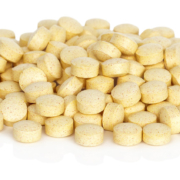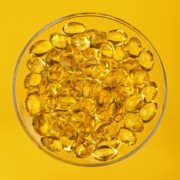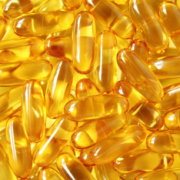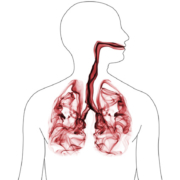Dr. Chet’s Health Memos
 If it’s in the health news today, I’ll be writing about it as soon as I read the research, both old and new. With my email Health Memos, you’ll know more about making lifestyle choices that will help you get and keep good health. These free, concise updates on health are emailed to subscribers twice a week. Subscribe today and get a free MP3, in English or Spanish, of Dr. Chet’s Top Ten Tips—Small Changes for a Healthier Life.
If it’s in the health news today, I’ll be writing about it as soon as I read the research, both old and new. With my email Health Memos, you’ll know more about making lifestyle choices that will help you get and keep good health. These free, concise updates on health are emailed to subscribers twice a week. Subscribe today and get a free MP3, in English or Spanish, of Dr. Chet’s Top Ten Tips—Small Changes for a Healthier Life.
Sugar Alternatives
Dealing with our sweet tooth this week, let’s look at sugar alternatives that may give us better choices if we don’t want to use artificial sweeteners.
Sugar alcohols are one alternative; xylitol, sorbitol, and other sugar alcohols are often used in candies and other treats. They can be a reasonable alternative to regular sugar, but there are a few things you need to know. First, they have a pronounced aftertaste; it feels like a cool sensation. Second, they’re not calorie free but . . .
We're sorry, but this content is available to Members and Insiders only.
If you're already a DrChet.com Member or Insider, click on the Membership Login link on the top menu. Members may upgrade to Insider by going to the Store and clicking Membership; your membership fee will be prorated automatically.
The Sugar Conundrum
During the holiday season, there are plenty of sugary snacks available. Candy, cookies, pies, all kinds of treats. But can something as simple as jam on toast, let alone the holiday treats, be an issue for someone with prediabetes or type 2 diabetes? With close to half of all adults afflicted with one condition or the other, any kind of sugar stops them in their tracks. I see people reading labels carefully in the grocery store and often hear the words “No good. It has sugar!” In the prediabetes and diabetes groups I . . .
We're sorry, but this content is available to Members and Insiders only.
If you're already a DrChet.com Member or Insider, click on the Membership Login link on the top menu. Members may upgrade to Insider by going to the Store and clicking Membership; your membership fee will be prorated automatically.
Dreading Thanksgiving?
Thursday is America's biggest eating holiday, and a lot of us who need to watch what we eat are dreading all the choices we'll have to make. How do you handle it?
Here's my suggestion: give yourself a moderate serving of everything that appeals to you and enjoy it thoroughly. If you absolutely must take a serving of Aunt Minnie's casserole, take a tablespoon or two; as long as you eat some, tradition is maintained and no feelings are hurt.
Then take a breather. Sit and talk with everyone for 10 or 20 minutes. If you . . .
We're sorry, but this content is available to Members and Insiders only.
If you're already a DrChet.com Member or Insider, click on the Membership Login link on the top menu. Members may upgrade to Insider by going to the Store and clicking Membership; your membership fee will be prorated automatically.
Power Up with Vitamin B12
The final supplement I’ll cover this week is vitamin B12, sometimes called the energy vitamin. Many vitamins are involved with energy production, but a lack of B12 can certainly cause problems with energy and other issues.
Vitamin B12 is also known as cobalamin and if you’re wondering, yes, this vitamin does include the mineral cobalt. There are two primary functions of B12 in the body. The first is to help reduce the chemical homocysteine to methionine while helping folate be converted into a usable form in the same reaction. Without enough B12, homocysteine increases inflammation in the body . . .
We're sorry, but this content is available to Members and Insiders only.
If you're already a DrChet.com Member or Insider, click on the Membership Login link on the top menu. Members may upgrade to Insider by going to the Store and clicking Membership; your membership fee will be prorated automatically.
Do You Make Enough Coenzyme Q10?
There’s one major difference between coQ10 and other vitamins, minerals, and nutrients such as omega-3s: we can produce coQ10 ourselves. The problem is that we may not produce all the coQ10 we need, especially as we get older.
CoQ10 is used in the production of energy from both carbohydrates and fat in the mitochondria of the cells. You remember mitochondria from science class; they’re often called the powerhouse of the cells. And coQ10 is the substance that’s used to produce that power. It’s critical in the steps where oxygen is used to produce ATP, the . . .
We're sorry, but this content is available to Members and Insiders only.
If you're already a DrChet.com Member or Insider, click on the Membership Login link on the top menu. Members may upgrade to Insider by going to the Store and clicking Membership; your membership fee will be prorated automatically.
What You Need to Know About Omega-3s
This week I’m covering basic information about three supplements. One of my favorites and one I don’t ever leave home without is omega-3 fatty acids.
There are three basic forms of omega-3 fatty acids: eicosapentanoic acid or EPA, docosahexaenoic acid or DHA, and alpha-linolenic acid or ALA. The body cannot make omega-3 fatty acids, so they have to come from food and supplements. ALA is an essential fatty acid—the body can make EPA and DHA from it but not very well—so getting EPA and DHA from diet and supplements is critical.
EPA . . .
We're sorry, but this content is available to Members and Insiders only.
If you're already a DrChet.com Member or Insider, click on the Membership Login link on the top menu. Members may upgrade to Insider by going to the Store and clicking Membership; your membership fee will be prorated automatically.
The Genetics of Smoking
The study I’m examining this week is profound for a number of reasons. Identifying the genes that are affected by direct contact with the toxins in cigarette smoke provides one piece of a very complex puzzle. For example, they showed the difference in genetic mutations in the same type of tumors between smokers and non-smokers. The smokers had the genetic mutations while the non-smokers didn’t. So why did they get that type of cancer? That’s why I said it’s one piece of a puzzle. There are undoubtedly other factors involved.
With the information that . . .
We're sorry, but this content is available to Members and Insiders only.
If you're already a DrChet.com Member or Insider, click on the Membership Login link on the top menu. Members may upgrade to Insider by going to the Store and clicking Membership; your membership fee will be prorated automatically.
Smoking and Cancer Update
A fascinating research paper was recently published in which researchers compared the genetic mutations found in 14 different types of tumors from chronic cigarette smokers and those who never smoked. They were attempting to see the differences in the genetic damage that occurred in tumors from the same organs between people who smoked and those who had never smoked. While they occur less frequently in non-smokers, some types of lung cancers still occur in those who never smoke.
This was complicated research to say the least. The research group had developed an algorithm that would look at over 90 . . .
We're sorry, but this content is available to Members and Insiders only.
If you're already a DrChet.com Member or Insider, click on the Membership Login link on the top menu. Members may upgrade to Insider by going to the Store and clicking Membership; your membership fee will be prorated automatically.
The Bottom Line on a Low-Fat Diet
In this final look at the opinion article in JAMA, I’m going to cover another statement the author made along with some thoughts on the article and why it matters.
In the article, he suggests that, based on the theory that carbohydrates do not cause weight gain, public health policy was changed to encourage the use of more starch and sugars (1). Specifically he cited Healthy People 2000 Nutrition Goal 2.15, which recommended that food manufacturers “increase to at least 5,000 brand items the availability of processed food products that are reduced in fat and saturated fat . . .
We're sorry, but this content is available to Members and Insiders only.
If you're already a DrChet.com Member or Insider, click on the Membership Login link on the top menu. Members may upgrade to Insider by going to the Store and clicking Membership; your membership fee will be prorated automatically.
As Much Sugar As You Want!
Continuing the topic from Tuesday’s message, I’m going take a look at one specific statement that the author made in his article in JAMA (1). I chose it because he specifically stated it was used to justify the increase in carbohydrate recommendations in public health policy. I also had never heard of it before—and I’ve been around awhile. The inner quote was taken from an article written in 2001 (2) that was used as a reference in . . .
We're sorry, but this content is available to Members and Insiders only.
If you're already a DrChet.com Member or Insider, click on the Membership Login link on the top menu. Members may upgrade to Insider by going to the Store and clicking Membership; your membership fee will be prorated automatically.










